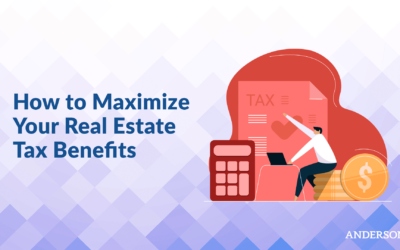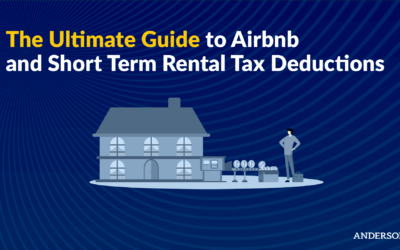Updated January 5, 2020
If you own real property that you could sell for a substantial profit, you may have wondered whether there’s a way to avoid or minimize the taxes that would result from such a sale. The answer is yes, if the property is business or investment related. Normally, the gain from a sale of a capital asset is taxable income, but Section 1031 of the Internal Revenue Code provides a way to postpone the tax on the gain if the property is exchanged for a like-kind property that is also used in business or held for investment. These transactions are often referred to as 1031 exchanges and may apply to other types of property besides real estate, but the information in this article is geared toward real property.
It is important to note that these exchanges are not “tax-free” but are “tax deferred.” The gain that would otherwise be currently taxable will eventually be paid when the replacement property is sold in the future in a regular sale. As with all things tax, there are rules and regulations to be followed to ensure that the transaction qualifies, such as:
- The property must be given up and its replacement must be actively used in a trade or business or held for investment, so a personal residence or a vacation home won’t qualify. However, under some circumstances, a vacation home that has been rented out may qualify.
- The properties must be of like kind. For instance, this means you can’t exchange real estate for an airplane. But the definition is quite broad for real property – for example, it is OK to exchange raw land for an office building, a single-family residential rental for an apartment building, or land in the city for farmland. Typically, the owner of a residential rental who participates in an exchange will trade for another residential rental. Both real estate properties must be located in the United States. Caution: Stocks, bonds, inventory, partnership interests and business goodwill are excluded from Sec 1031 exchanges.
- It is unusual for two taxpayers to each have a property that the other wants where they can enter into a simultaneous exchange. Most likely, if you wanted to exchange your property, you may need to do a “deferred exchange,” which means you effectively sell your property and then find a suitable replacement property. In this case, the law is very strict. You must identify, in writing, the replacement property within 45 days of the date your property was transferred and complete the acquisition of the replacement property within 180 days of the transfer or, if earlier, by the due date, including extensions, of your tax return for the tax year in which your property was transferred. During this period you aren’t allowed to receive the proceeds from the sale of your property.
- The property acquired in an exchange must be of equal or greater value to the one you gave up, and all of the net proceeds from the disposition of the relinquished property must be used to acquire the replacement property. Otherwise, any unused proceeds are taxable.
With this basic information about 1031 exchanges, you may still be wondering whether an exchange is right in your situation. So let’s consider some of the advantages and disadvantages of exchanges.
ADVANTAGES:
Tax deferral – The main reason most people choose to do a 1031 exchange is so taxes don’t have to be paid currently on the gain that would result from selling the property. The maximum federal tax rate paid on capital gains for most taxpayers is 15% (20% if you would otherwise be in the highest tax bracket of 39.6%). However, the part of the gain that is equal to the depreciation deduction you’ve claimed while you’ve owned the property is taxable at a maximum of 25%.
Leveraging the tax savings – When an exchange is used, the money that doesn’t have to be spent to pay the taxes that would have been owed on the gain from a sale can be used to acquire other property or higher-value property.
Asset accumulation – The money saved from not paying tax on the sale gain can be retained as part of your estate to be passed to your heirs, who would also get a new basis on the replacement property that is equal to its fair market value at your date of death. In this case, none of the postponed gain from the original property is ever subject to income tax. However, depending on the overall size of your estate, there could be estate tax considerations.
Potential management relief – Taxpayers sometimes decide to sell their property to get out from under the burden of managing and maintaining the property. An exchange may still accomplish this without an outright sale by allowing the taxpayer to acquire replacement property that has fewer maintenance requirements and associated costs or has on-site management.
DISADVANTAGES:
Added complexity and expense – An exchange transaction involves more complexity than a straight sale. The timing requirements noted above must be strictly met or the transaction will be taxable. To avoid tainting the transaction when there’s a deferred exchange, the proceeds from the original property must not be received by the seller, and a qualified intermediary also called an accommodator, must be hired to handle the money and acquire the replacement property. The intermediary’s fees will be in addition to the usual selling and purchase expenses incurred.
Low tax basis – The tax basis on the property acquired reflects the deferred gain so the basis for depreciation will be low. Thus, the annual depreciation deduction will often be much less than it would be if the property were purchased outright. Upon sale of the property, the accumulated tax deferrals will catch up, and the result will then be a large tax bill.
No property flipping – The intent of the law permitting exchanges is for the taxpayer to continue to use the replacement property in his trade or business or as an investment. An immediate sale of the replacement property would not satisfy that requirement. How long must the replacement property be held? In most situations, there is no specific guideline, but generally, 2 years would probably suffice. “Intent” at the time of the exchange plays a major role according to the IRS.
Unknown future law changes – When weighing whether to do a 1031 exchange, consider the known tax liability if you sold your property versus the unknown tax that will be owed on the deferred gain when you eventually sell the replacement property in the future. If you think tax rates may be higher in the future, you may decide to pay the tax when you sell your original property and be done with it. Recent proposals by various members of Congress and President Obama would severely curtail or even eliminate 1031 exchanges and increase the depreciation period of real property from 27.5 years for residential property and 39 years for a commercial property to 43 years for both. These proposals may never pass, but they are an indicator of how 1031 exchanges are currently viewed in Washington, D.C.
Free Strategy Session with an Anderson Advisor
Receive a detailed risk assessment to assist in lowering problem areas that could wipe out all of your assets with one wrong move. Speak with an Anderson Professional Advisor to get your FREE Strategy Session. Limited-Time Offer: FREE (a $750 value.)














